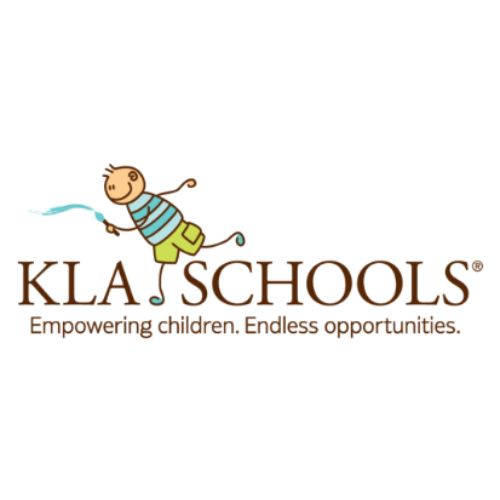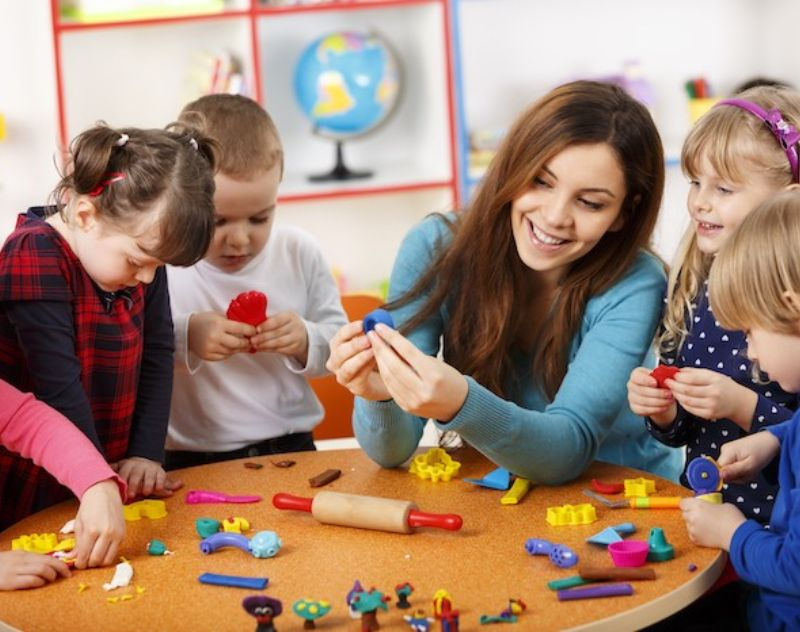How Preschool Plainfield Prepares Your Child for a Bright Future
- KLA Schools of Plainfield

- Jul 17, 2025
- 4 min read
As parents and guardians, we all want our children to succeed in every aspect of life. And to make that possible, we aim to give them the best start—especially when it comes to their education. We want to make sure they’re getting the right foundation. While most parents agree on the importance of formal schooling, the idea of preschool doesn’t always get the same attention. For those who didn’t grow up with preschool or childcare as a norm, the thought might be, “We didn’t go to preschool, and we are doing good in our lives .”
That’s a fair point—but things have changed. In the past, families were often joint or extended, with lots of adults and other children around. Early learning and socialization happened naturally within the household and neighborhood.
Today, many families are nuclear, living in apartments or smaller spaces. Children don’t always get as much exposure to other kids or grown-ups. Yes, parents can teach their children at home, but what about the other important aspects of child development?
So, what exactly are those skills that Preschool Plainfield helps children develop and why should parents know about them before they search for the best “childcare near me”?
In this blog, we’ll explore the essential life skills that preschools teach young children and how these early lessons create a strong foundation for lifelong learning and growth.

1. Social and Emotional Growth
Preschool helps children learn how to connect with others. For many kids, it's the first experience of regularly interacting with others their age outside of their family. Preschools Plainfield plan so many activities where kids learn how to share. Kids also learn how to take turns and how to read emotions of their own and the emotions of others.
The basis for building a positive emotional experience is the education about empathy, cooperation, and communication skills with others. When kids have safety, they feel heard and understood, they learn a lot about confidence and self-image.
2. Laying the Learning Groundwork
Preschool is again not about learning facts but rather a passion to learn. Our teachers at the preschool are the ones who explore the sense of wonder and curiosity which children are born with and foster that creatively in an enjoyable manner through stories, games, songs, and activities with their hands.
Children do grasp such fundamental educational facts as letters, colors, and numbers but what they actually learn is to enjoy learning and that is what very often develops into a positive approach which many children bring with them to the schooling era.
3. Early Math and Reading Abilities
Preschool introduces children to foundational math and reading concepts through play and fun. Simple games, puzzles, and songs of counting, sorting, recognizing patterns, and shapes engage children in math learning.
With reading, children are walking into the alphabet, phonics, and sounds in words. The concept of how stories work, planning, and reading simple words, is all preparing children for kindergarten and elementary school formal learning.
4. Physical activity and development
Children are quite energetic at this age, and movement also contributes a significant part to their learning. Preschool activities promote these physical activities on the outside, sports, and free movement. These are the activities to enhance the sense of balance, coordination, and big motor skills such as running and jumping.
Activities such as building blocks or using crayons are a form of indoor activities that assist in fine motor skills. Such skills are not only needed at school for homework, such as writing, but also in everyday life, for instance tying shoes or using a spoon.
5. Encouraging Independence
It is in preschool that children learn to do things independently and that is normally where one should start off. The eagerness to make decisions by the child such as which toy to play with, when it is time to empty the bowels and how to do it after them makes them feel independent.
Most of the preschools Plainfield teach the preschoolers to organize their own things, perform daily chores of the day, and solve minor problems without having to seek the help of others at the Preschool Plainfield. These small projects also boost their self-esteem and prepare them for more responsibilities in future.
6. Stepping Stone for the Next Big Step
School readiness is one of the greatest advantages of having preschool. Children know how to be a classroom participant, how to listen, ask questions, take instructions, and collaborate with others.
They become accustomed to having a routine, sitting in a group, and attending to activities for a short period. When they come to kindergarten, they will not hesitate about the idea of studying following the given format, and after it, the transition will be fast and stress-free.
Bottom Line
Preschools Plainfield don’t just teach kids numbers and letters—they also help children build social skills, decision-making abilities, and basic etiquette that shape their overall personality. Of course, we’re not saying children can’t learn these skills elsewhere, or that skipping preschool means a child won’t succeed.
Our goal is simply to help parents who are unsure and thinking, “Why should I send my child to preschool?” We’ve outlined the many ways Preschool Plainfield supports early learning, socialization, and foundational skills like numerical literacy. Some benefits are easy to spot right away; others take time to unfold. But no matter when they appear, one thing is clear: preschool lays the groundwork for a confident, curious, and well-prepared child.
Searching for “Childcare near me” Plainfield for your little one? Get in touch with KLA Schools.



Comments